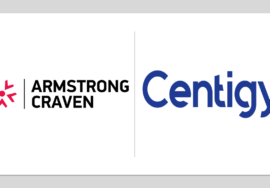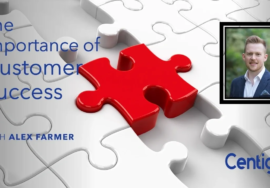
Wellbeing 2.0: The Evolution of Mental Health in a Post-Covid World
The Covid-19 pandemic has brought about significant changes in the way we live, work, and interact with one another. From lockdowns and social distancing to remote work and virtual meetings, the pandemic has disrupted almost every aspect of our daily lives. While the physical health impacts of the pandemic have been widely reported, the toll on our mental health has been just as significant. In fact, the pandemic has ushered in a new era of mental health awareness and advocacy, which some are calling Wellbeing 2.0.
Pre-Covid Mental Health
Prior to the pandemic, mental health was already a growing concern around the world. According to the World Health Organisation, depression and anxiety disorders alone were estimated to cost the global economy over £1 trillion per year in lost productivity. Stigma surrounding mental illness was still prevalent in many parts of the world, preventing many people from seeking help. While awareness and support for mental health were increasing, progress was slow.
Post-Covid Mental Health
The Covid-19 pandemic has had a profound impact on mental health around the world. The isolation and uncertainty of lockdowns, the loss of loved ones, and the economic impacts of the pandemic have all contributed to a rise in mental health issues. A recent study by the Centers for Disease Control and Prevention in the US found that the percentage of adults experiencing symptoms of anxiety or depression increased from 36.4% in August 2020 to 41.5% in January 2021. The pandemic has also highlighted existing disparities in mental health, with marginalised communities experiencing higher rates of mental illness and less access to care.
Wellbeing 2.0
The term Wellbeing 2.0 has emerged to describe the growing awareness and advocacy around mental health in a post-Covid world. Wellbeing 2.0 recognises the need for a holistic approach to mental health, addressing not just mental illness but also factors like social connection, work-life balance, and access to nature. It also acknowledges the importance of equity in mental health, ensuring that everyone has access to the care and support they need.
The pandemic has brought mental health to the forefront of public consciousness, creating an opportunity to accelerate progress towards Wellbeing 2.0. Governments, organisations, and individuals around the world are taking action to address mental health in new and innovative ways. For example, some companies are offering mental health days and counselling services to employees, while others are investing in nature-based therapies and mindfulness programs. Governments are increasing funding for mental health services and launching campaigns to reduce stigma around mental illness.
Daily Fitness & Occasional Therapy
Maintaining a regular fitness routine has been shown to have a positive impact on mental health. Exercise releases endorphins, which can boost mood and reduce stress levels. Additionally, taking occasional therapy sessions can be incredibly helpful for managing stress and anxiety. Therapy provides a safe and confidential space to talk about difficult emotions and work through personal challenges.
New App – Joye
Joye is a new app that offers a unique mental fitness experience weaved into the flow of work in Microsoft Teams. It is an AI-powered solution that uses intelligent triage to offer counselling and therapy to those who need it. Joye offers a range of exercises and games that are designed to boost mental fitness and improve emotional resilience. The app uses advanced technology to provide a personalised experience that adapts to the user’s needs.
Human Benefits of Mental Health
Investing in the mental health of employees is critical for creating a healthy and productive workplace. By providing tools and resources to support mental health, organisations can improve employee engagement, reduce absenteeism, and increase overall productivity. Additionally, promoting mental health in the workplace can help reduce stigma around mental illness, creating a more supportive and inclusive culture.
Business Impact of Mental Health
To ensure corporations continue to invest in mental health, it is important to understand the business impact. Joye has created an ROI calculator that helps companies quantify the business impact of mental health on their business. The calculator uses the framework from leading research from experts like Gallup and HRM to provide an estimate of the financial benefits of investing in mental health. By demonstrating the ROI of mental health initiatives, companies can make a compelling business case for investing in the mental health of their employees.
Conclusion
In conclusion, daily fitness and occasional therapy can be helpful for maintaining mental health, and the new app Joye offers a unique solution to improve mental fitness and emotional resilience. Investing in mental health has numerous human benefits, including improving employee engagement and creating a more inclusive workplace culture. With the help of tools like Joye’s ROI calculator, companies can quantify the business impact of mental health and make informed decisions about investing in their employees’ mental health and well-being.








